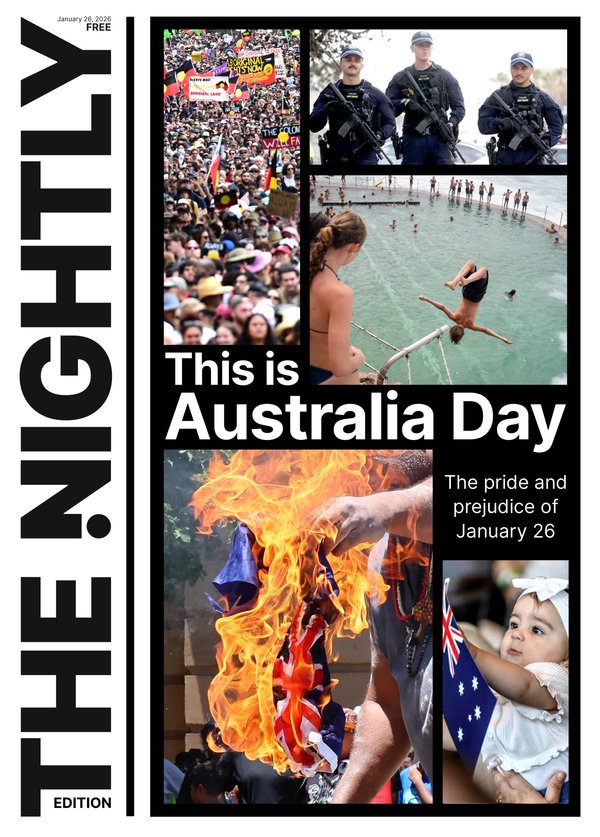Nine TV revenues retreat after Olympics, board renews pledge over workplace bullies

Nine Entertainment has warned its TV advertising revenues have fallen away after the Olympics and suggested it is still to get rid of staff accused of misconduct in last month’s damning cultural review.
The Channel 9 owner told investors ahead of its annual general meeting in Sydney on Thursday that while its TV revenues jumped 15 per cent in the September quarter on the back of the Paris Games, they had since reverted to last financial year’s rate of decline, down 10 per cent.
“While we remain more optimistic about the second half, we are seeing no tangible signs of improvement to date,” it said.
Sign up to The Nightly's newsletters.
Get the first look at the digital newspaper, curated daily stories and breaking headlines delivered to your inbox.
By continuing you agree to our Terms and Privacy Policy.At the AGM, Nine chair Catherine West and acting chief executive Matt Stanton renewed their pledges to hold wrongdoers to account over the findings of the cultural review which found TV bosses bullied, harassed and belittled staff as part of a toxic culture that “normalised” and ignored inappropriate workplace behaviour.
However, their comments suggested those at the heart of the misconduct were still at the group.
“It is still early days, but there will be change at Nine and individuals will be held to account for behaviour of this nature,” Mr Stanton said.
The review by consultants Intersection included harrowing anonymised testimony from past and present staff, many of them women, who spoke of their despair, fear and horror about abhorrent workplace misconduct that has gone unchecked.
The review was also likely behind a ‘first strike’ against Nine at the AGM, with 37.4 per cent of shares voted against the company’s remuneration report. Ms West told shareholders that proxy advisers ISS and the Australian Council of Superannuation Investors had recommended against the report.
There was also a strong 17 per cent protest vote against her re-election.
Ms West, a director since 2016, defended Nine and the board as several shareholders questioned why they were not aware of the misconduct, particularly given the media industry’s poor record.
She said it had now become clear that staff who were victims of the bullying and sexual harassment had not reported the behaviour because they did not trust Nine’s reporting channels and not believe the wrongdoers would be punished.
“I wish I had known, and we really did look for it,” Ms West insisted.
“We would do surveys, we would ask the management team to literally do word searches around inappropriate behaviour, bullying, harassment, it wasn’t there.
“We had all the normal reporting processes, we’ve had sexual and inappropriate conduct training, so we’ve had all the normal things you would expect from a company of our size and responsibility.
“What we have really found out is that the reporting levels were really low because people didn’t trust those systems and there was a severe imbalance of power that we didn’t understand.”
The cultural review found Nine had “a systemic issue” with abuse of power, bullying, discrimination and sexual harassment, and that management failed in its responsibilities to protect staff who were sometimes driven to the point of self-harm.
Nine has vowed to implement all 22 of the landmark report’s recommendations, including overhauling its HR department, reviewing its code of conduct and appointing external parties to investigate workplace complaints.
While Intersection found the misbehaviour extended into Nine’s publishing and radio arm, which include the Australian Financial Review newspaper and Perth’s 6PR radio station, the broadcasting business was the biggest problem spot.
Some 62 per cent of broadcast employees reported experiencing or witnessing abuse of power, 57 per cent experienced bullying, discrimination or harassment, and 30 per cent experienced sexual harassment.
Intersection found the TV arm was littered with management failures, with senior leaders — both men and women — publicly humiliating underlings, sharing confidential information about staff with other employees, promoting or appointing employees based on their status or relationships and covering up inappropriate workplace behaviour.
